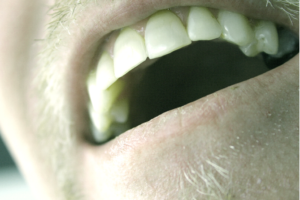One of the scariest phrases for anyone to hear from the dentist is “root canal.” Root canals evoke images of pain and suffering, lying in bed and recovering for weeks. Like many exaggerations from Hollywood, root canals are not as scary as movies make them seem.
A root canal is a procedure that can help save a tooth which might have a lot of damage or a big cavity. When cavities are left untreated for a long time, they go down into the root of the tooth. This decay can lead to infection and more serious dental and health problems.
Root canals help treat the tooth and save it along with a crown so you can continue to use your tooth for years to come. While root canals are serious procedures, they are no longer the deeply painful, disruptive procedures that you need to fear.
Why Do I Need a Root Canal?
In the past, a tooth that had suffered serious damage from an accident or trauma, or teeth that had deep, untreated cavities would have to be pulled. This was because of the risk of infection reaching your jawbone. If an infection ever reaches into your jaw, you risk severe bone loss and other major health problems.
To prevent this, teeth would be pulled which would cause other problems such as misshapen teeth. The more modern treatment is a root canal. Root canals help remove the infection and bacteria and allow your dentist to build a crown and restore the strength of your tooth and prevent the need to remove the tooth entirely.
How Does My Dentist Perform a Root Canal?
The entire root canal procedure has four steps. While these steps can often be done all at once, that isn’t always the case.
- Your dentist will start by numbing the tooth and area for your comfort and installing a rubber or latex mask to keep that tooth dry.
- Next, they will drill through the crown and create the canals in the roots of your teeth. These canals will be cleaned and disinfected to remove the bacteria. In some cases, you may have to come back for a second visit to finish the procedure after the medicine has taken effect.
- Next, the roots are filled with a rubber material to help strengthen the tooth.
- Finally, a crown is installed on top to reinforce the structure and help you use your tooth for years to come.
What Happens After a Root Canal?
Teeth that have had a root canal and crown are strong but must be cleaned and well taken care of like regular teeth. This includes brushing, flossing and mouth washing to prevent issues. Additionally, your dentist may prescribe some pain medicine for a couple of days.
Fortunately, the root canal procedure has improved over time and most people do not experience intense pain after the procedure after the first day.
With everyone being stuck at home during the pandemic, one of the side effects has been a failure in executing people’s daily or morning routines. It is crucial during this time to make sure you are taking care of your body and oral health. If you haven’t seen a dentist in a long time, call us today to make an appointment to see how your teeth are doing.
If you’re worried you may need a root canal, you can trust us at Hassey Do Duy Dental Associates to take care of all your oral health needs.




